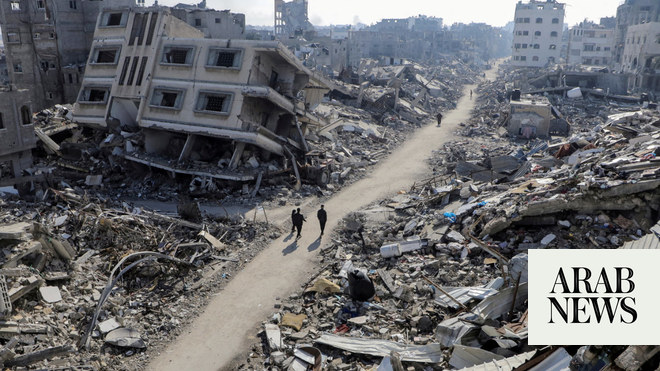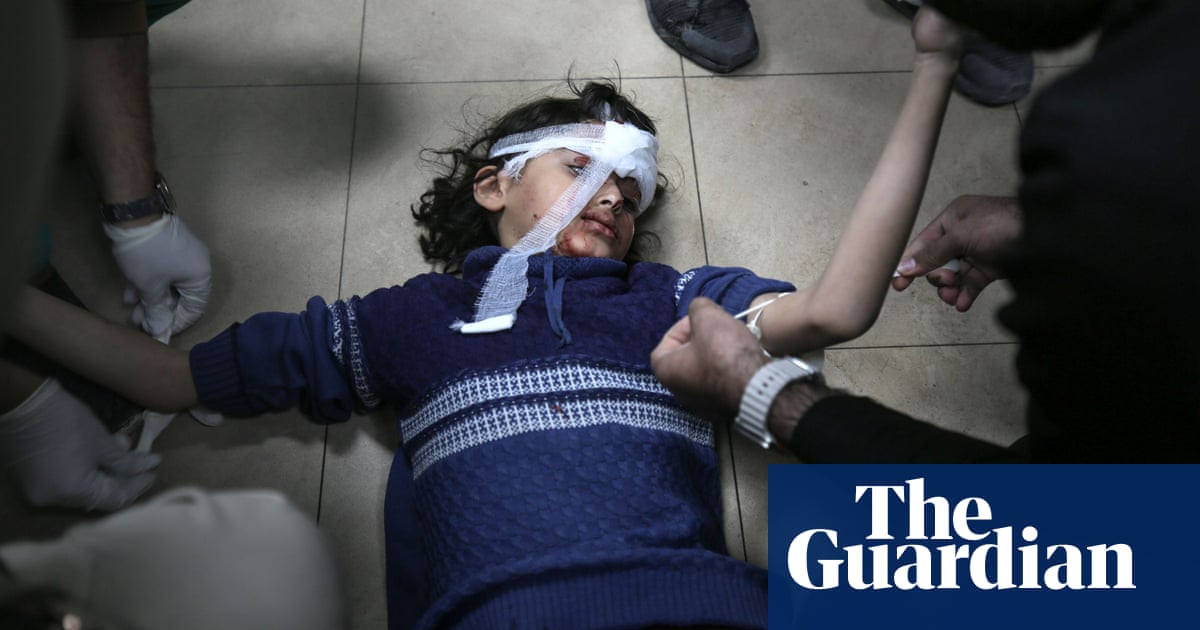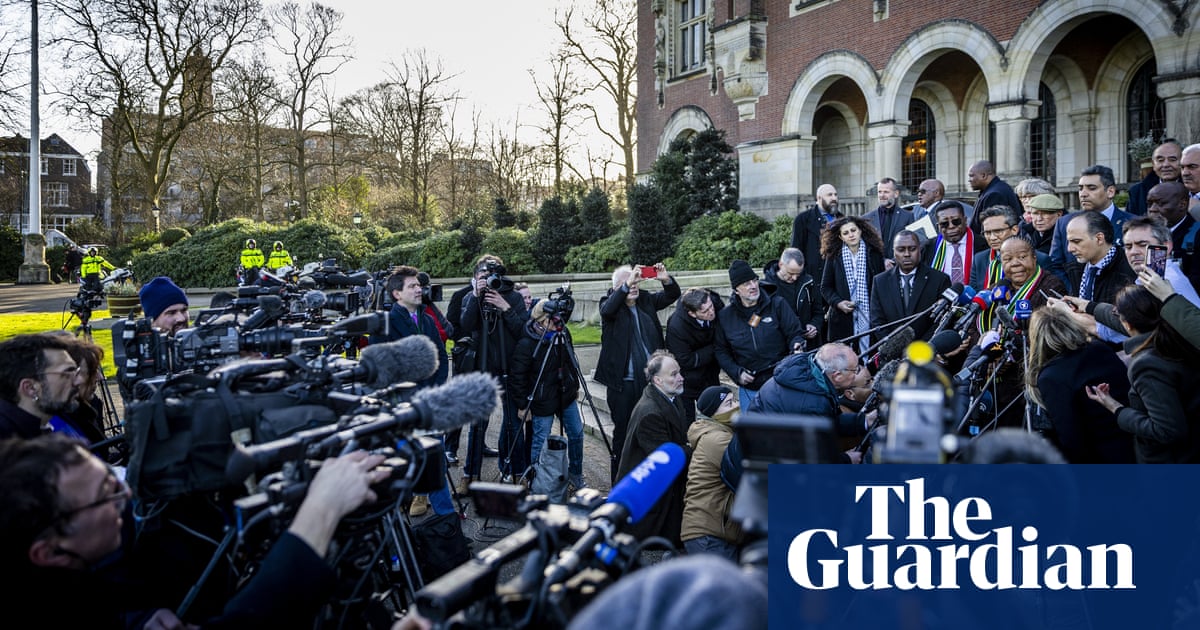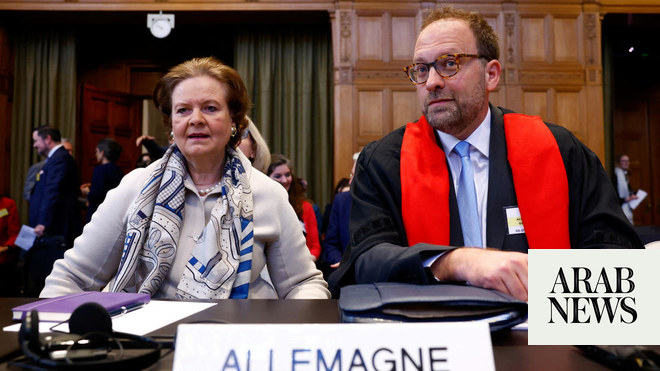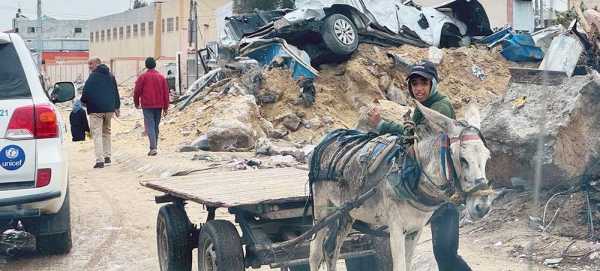
A UN human rights expert says she believes Israel has committed "acts of genocide" in Gaza.
Francesca Albanese, the UN special rapporteur on human rights in the occupied Palestinian territories, presented her report to UN member states in Geneva on Tuesday.
But Israel has already dismissed her findings.
This comes amid growing international pressure on Israel to stop the war or to do much more to protect civilians.
Albanese concluded that "there are reasonable grounds to believe that the threshold indicating the commission of the crime of genocide against Palestinians as a group in Gaza has been met".
Before Albanese even got to her feet, her findings had been dismissed by Israel, whose ambassador described it as "an outrageous distortion of the Genocide Convention".
Israel has for years been angered by the UN Human Rights Council"s agenda, which permanently devotes an entire section — Item 7 — to scrutiny of the situation in "Palestine and the other occupied Arab territories".
The agenda item was approved not by the UN itself, but by UN member states, decades ago, and has never expired. No other country in the world has permanent scrutiny like this, and Israel views it as discriminatory, and aimed at delegitimizing Israel. It refuses to attend the council when Item 7 is under discussion.
But many countries, in particular those in the Middle East, argue that the situation — in the absence of self-determination for Palestinians through a two-state solution — requires ongoing investigation, and now that there is another conflict, all the more so.
Since Hamas"s brutal attack on Israel on Oct. 7, Albanese has called for the release of the hostages, and does so again in this report. In it she "firmly condemns the crimes committed by Hamas and other Palestinian armed groups in Israel on Oct. 7".
But she has also been outspoken in her criticism of Israel"s conduct of the war in Gaza.
That"s why her report has been awaited with both impatience, and trepidation.
Albanese"s choice of a title for it: "Anatomy of a Genocide" was not exactly diplomatic. Many member states, especially those traditionally supportive of Israel, will be uncomfortable.
But UN special rapporteurs, while tasked by the UN to examine and advise on specific situations, are independent of it.
Genocide is a specific legal term, and Albanese"s report suggests some of the legal criteria have been fulfilled.
She cites what she says appears to be Israel"s intention to destroy Palestinians as a group "in whole or in part", a key clause in the Convention against Genocide.
She mentions in particular three elements which point to possible genocide:
• Killing members of the group
• Causing serious bodily or mental harm to members of the group
• Deliberately inflicting on the group conditions of life calculated to bring about its physical destruction in whole or in part
The death toll in Gaza, currently well over 32,000 according to Gaza"s Hamas-run Health Ministry, the bombing of densely populated areas, and the restrictions on aid supplies (which, the UN says, have brought Gaza to the brink of famine), are all proof, the report claims, of intent to destroy the group.
Basel Alsourani, of the Palestinian Centre for Human Rights, welcomed the report. He suggested international law had been violated by all sides in this conflict, but argued that genocide was such a serious crime the international community could not ignore it.
"Allowing genocide to happen doesn"t only affect Palestinians..., it affects all human beings around the world," he said.
"If now Israel is committing genocide without accountability, tomorrow we don"t know which country will claim that genocide has been committed by Israel, and [therefore] I can commit genocide with no accountability."
Tala Nasir, a Palestinian human rights lawyer who also traveled to Geneva to hear the report, hoped it would draw more attention to the fate of what she said were thousands of people detained by Israel since Oct. 7.
"They have arrested more than 7,700 Palestinians," she said.
"Eighty percent of them are being held under administrative detention which means they are not presenting any charges against them."
Their families, she pointed out, had no contact with them, and no idea where they were.
Not surprisingly, Israeli diplomats are angry. Its ambassador to the UN in Geneva, Meirav Eilon Shahar, described the report as "an obscene inversion of reality", and accused Albanese of questioning Israel"s right to exist.
Many Israelis, too, are likely to be shocked. And the suggestion of genocide, towards a state which was founded as a direct result of Nazi Germany"s genocide of Jews, will cause deep offense.
In the wake of Oct. 7 attack, and the fact that so many Israeli families are still waiting for news of loved ones taken hostage, hearing such outspoken condemnation is hard.
Noam Peri, whose father Chaim was taken hostage, also traveled to Geneva. Her focus, naturally, is that her father not be forgotten.
"My father was kidnapped from his own home," she said.
"He"s an 80-year-old person that was sitting in his home with my mother, and he was brutally taken from there, and has essentially disappeared since. He has no communication, with no-one in the world."
But, as this week"s vote for an immediate ceasefire at the UN Security Council shows, member states are growing impatient with Israel"s conduct of the war.
Too many well-respected UN aid agencies have warned that nowhere in Gaza is safe, that families are now eating animal feed, or grass, that amputations are being performed on children without anesthetic.
They all say Israel is restricting vital aid supplies, and governments have begun to doubt Israel"s claim that the UN is to blame for the delays.
Many will not like Francesca Albanese"s choice of words, but the content of her report will add to the pressure on Israel to change its strategy. — BBC




